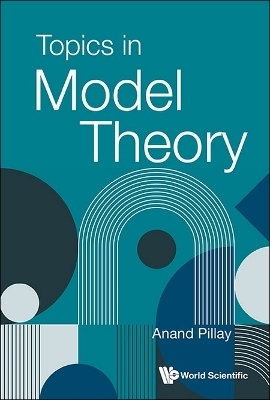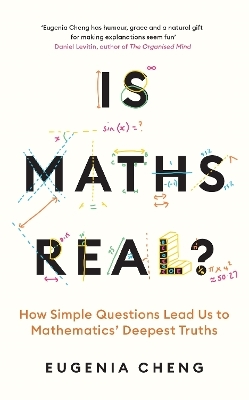
Classical Mathematical Logic
Princeton University Press (Verlag)
978-0-691-12300-4 (ISBN)
In Classical Mathematical Logic, Richard L. Epstein relates the systems of mathematical logic to their original motivations to formalize reasoning in mathematics. The book also shows how mathematical logic can be used to formalize particular systems of mathematics. It sets out the formalization not only of arithmetic, but also of group theory, field theory, and linear orderings. These lead to the formalization of the real numbers and Euclidean plane geometry. The scope and limitations of modern logic are made clear in these formalizations. The book provides detailed explanations of all proofs and the insights behind the proofs, as well as detailed and nontrivial examples and problems. The book has more than 550 exercises. It can be used in advanced undergraduate or graduate courses and for self-study and reference. Classical Mathematical Logic presents a unified treatment of material that until now has been available only by consulting many different books and research articles, written with various notation systems and axiomatizations.
Richard L. Epstein received his doctorate in mathematics from the University of California, Berkeley. He is the author of eleven books, including two others in the series "The Semantic Foundations of Logic (Propositional Logics and Predicate Logic), Five Ways of Saying "Therefore," Critical Thinking", and, with Walter Carnielli, "Computability". He is head of the Advanced Reasoning Forum in Socorro, New Mexico.
*FrontMatter, pg. i*Contents, pg. vii*Preface, pg. xvii*Acknowledgments, pg. xix*Introduction, pg. xxi*I. Classical Propositional Logic, pg. 1*II. Abstracting and Axiomatizing Classical Propositional Logic, pg. 27*III. The Language of Predicate Logic, pg. 53*IV. The Semantics of Classical Predicate Logic, pg. 69*V. Substitutions and Equivalences, pg. 99*VI. Equality, pg. 113*VII. Examples of Formalization, pg. 121*VIII. Functions, pg. 139*IX. The Abstraction of Models, pg. 153*X. Axiomatizing Classical Predicate Logic, pg. 167*XI. The Number of Objects in the Universe of a Model, pg. 183*XII. Formalizing Group Theory, pg. 191*XIII. Linear Orderings, pg. 207*XIV. Second-Order Classical Predicate Logic, pg. 225*XV. The Natural Numbers, pg. 263*XVI. The Integers and Rationals, pg. 291*XVII. The Real Numbers, pg. 303*XVIII. One-Dimensional Geometry, pg. 331*XIX. Two-Dimensional Euclidean Geometry, pg. 363*XX. Translations within Classical Predicate Logic, pg. 403*XXI. Classical Predicate Logic with Non-Referring Names, pg. 413*XXII. The Liar Paradox, pg. 437*XXIII. On Mathematical Logic and Mathematics, pg. 461*Appendix: The Completeness of Classical Predicate Logic Proved by Godel's Method, pg. 465*Summary of Formal Systems, pg. 475*Bibliography, pg. 487*Index of Notation, pg. 495*Index, pg. 499
| Erscheint lt. Verlag | 23.7.2006 |
|---|---|
| Co-Autor | Leslaw W. Szczerba |
| Zusatzinfo | 20 line illus. |
| Verlagsort | New Jersey |
| Sprache | englisch |
| Maße | 178 x 254 mm |
| Gewicht | 1134 g |
| Themenwelt | Mathematik / Informatik ► Mathematik ► Logik / Mengenlehre |
| ISBN-10 | 0-691-12300-4 / 0691123004 |
| ISBN-13 | 978-0-691-12300-4 / 9780691123004 |
| Zustand | Neuware |
| Haben Sie eine Frage zum Produkt? |
aus dem Bereich


